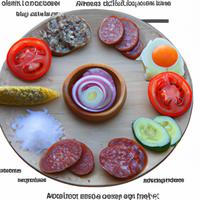
1 serving (15 grams) contains 60 calories, 0.0 grams of protein, 0.0 grams of fat, and 15.0 grams of carbohydrates.

Log this food in SnapCalorie

Nutrition Information
Calories |
952.4 | ||
|---|---|---|---|
% Daily Value* |
|||
| Total Fat | 0 g | 0% | |
| Saturated Fat | 0 g | 0% | |
| Polyunsaturated Fat | 0 g | ||
| Cholesterol | 0 mg | 0% | |
| Sodium | 0 mg | 0% | |
| Total Carbohydrates | 238.1 g | 86% | |
| Dietary Fiber | 0 g | 0% | |
| Sugars | 206.3 g | ||
| protein | 0 g | 0% | |
| Vitamin D | 0 mcg | 0% | |
| Calcium | 0 mg | 0% | |
| Iron | 0 mg | 0% | |
| Potassium | 0 mg | 0% | |
* Percent Daily Values are based on a 2,000 calorie diet. Your daily values may be higher or lower depending on your calorie needs.
Food Attributes
Source of Calories
About Life savers
Life Savers are a popular brand of ring-shaped candies introduced in the United States in 1912. These sweets are known for their vibrant flavors and hard candy texture, designed to "save" freshness and prevent melting. Typically composed of sugar, corn syrup, artificial flavors, and coloring, Life Savers provide a quick source of carbohydrates but lack significant nutritional benefits such as vitamins, minerals, or fiber. While their small serving size helps to moderate calorie intake, frequent consumption can contribute to added sugars in the diet, which may impact dental and overall health. Life Savers are widely enjoyed as a convenient, portable treat, but they're best consumed in moderation, particularly within a balanced diet.



